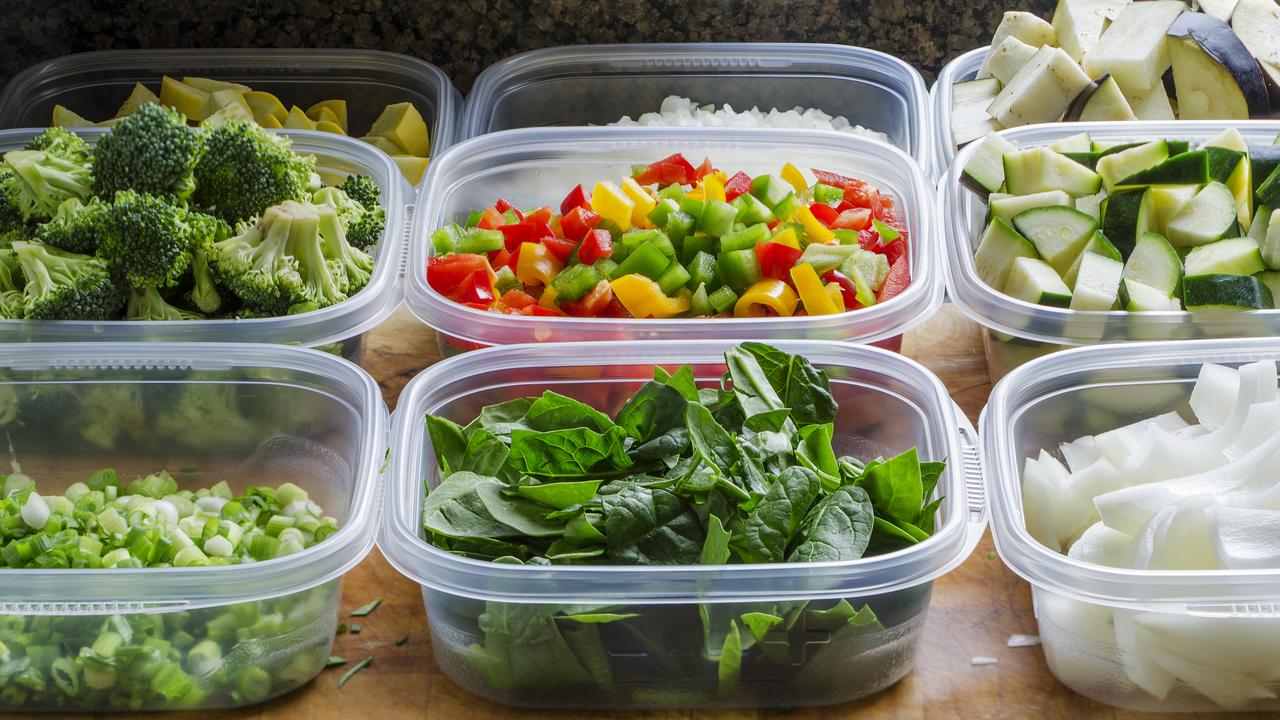Welcome to Ask Doctor Zac, a weekly column from news.com.au. This week, Dr Zac talks about microplastics and whether they can affect your health.
QUESTION: Hi Dr Zac, my new girlfriend is vegan and I thought when we first started dating she would complain about my diet choices, but it turns out what she actually gets upset about is how I store my food.
After our third date she raided my fridge and started spruiking all this nonsense about how my health and fertility is impacted by me living on takeaway food reheated in plastic containers in the microwave. She even had a go at me for drinking water from a reused water bottle – I thought I was doing good drinking two liters of water a day.
Should I believe her, or is this a red flag? Chris, 35, Sydney
ANSWER: Hi Chris, I recommend you get your eyes checked for color blindness, as this is a green flag not a red one.
Many vegans have a more comprehensive knowledge of nutrition compared to others as they have to think more about the food they eat. I recommend you take more note of what your partner tells you about food – you’ll most likely learn a thing or two. But always remember if something sounds fishy, get a second opinion from your doctor.
I believe your girlfriend is referring to microplastics.
These are tiny plastics (so small you can’t see them) which are derived from petrochemicals extracted from oil and gas products. A number of these tiny plastics are toxic, and contain carcinogenic chemicals which can cause cancer. Some are even mutagenic, which means they can damage DNA.
Laboratory tests have shown microplastics can cause damage to human cells, including both allergic reactions and cell death. A few have shown a connection to infertility, however, they are not concrete.
Tiny plastics derive from plastic as it weathers and ages. Almost 400 million tonnes of plastics are produced each year. If you consider how many things in our world are packed in plastic, including food and drink, you will realize how much of a ticking bomb this could be.
Microplastics enter the body through either ingesting or inhaling, and end up in various organs. When you heat food in your plastic takeaway containers, you are potentially leaching microplastics into your meal. Not only is the food you are eating most likely nutritionally inferior, you could also be eating troublesome plastics.
Drinking from a disposable plastic bottle may also lead to chemical leaching and toxicity over time. It’s more likely if your bottle becomes heated, by putting it in the sun, as this will increase the level of microplastics being leached. I recommend you swap your single-use plastic bottle for a metal bottle or more durable plastic or smash-proof glass one.
Microplastics aren’t a conspiracy – they are prevalent in all of our lives and are nearly impossible to escape entirely. One study even discovered 90 per cent of table salt is contaminated with microplastics.
Investigating microplastics levels in Australian homes, a study found that 42 per cent of collected dust was microplastics. An easy way to minimize plastics in your home is by having hard surfaces, like polished wood floors, instead of carpet. You should also vacuum weekly to reduce dust levels in your home.
Now I need to say that the studies are not conclusive, and it has not been proven to cause harm to humans, however research is indicating that it will soon become fact.
Follow in the footsteps of your partner, I advise you to eat fresh, real food! Plant-based alternatives are generally always better for you and the environment.
Heat your food up in non-plastic containers and buy your produce with as little plastic wrapping as possible. Farmers’ markets and local fruit and veg shops are always a safer bet.
Got a question:[email protected]
Dr Zac Turner has a Bachelor of Medicine and Bachelor of Surgery from the University of Sydney. He is both a medical practitioner and a co-owner of telehealth service, Concierge Doctors. He was also a registered nurse and is also a qualified and experienced biomedical scientist along with being a PhD candidate in Biomedical Engineering
.
